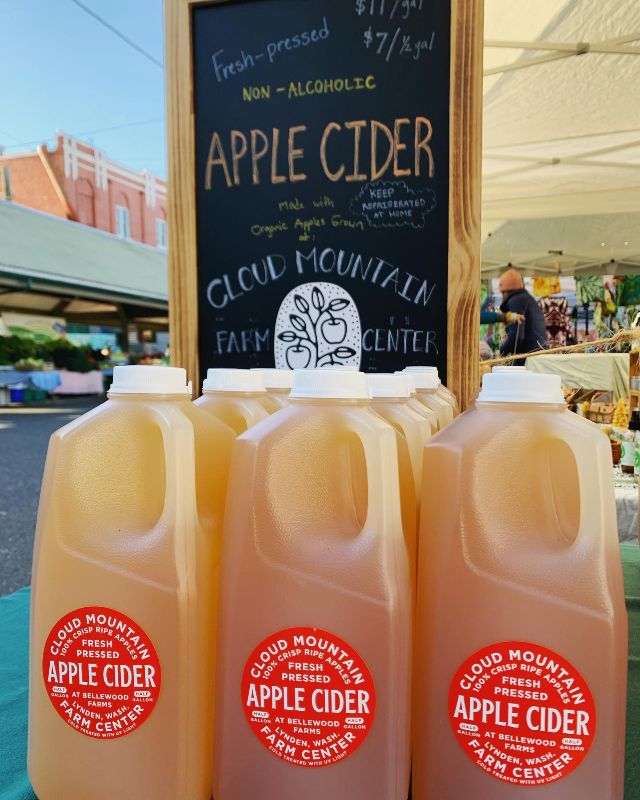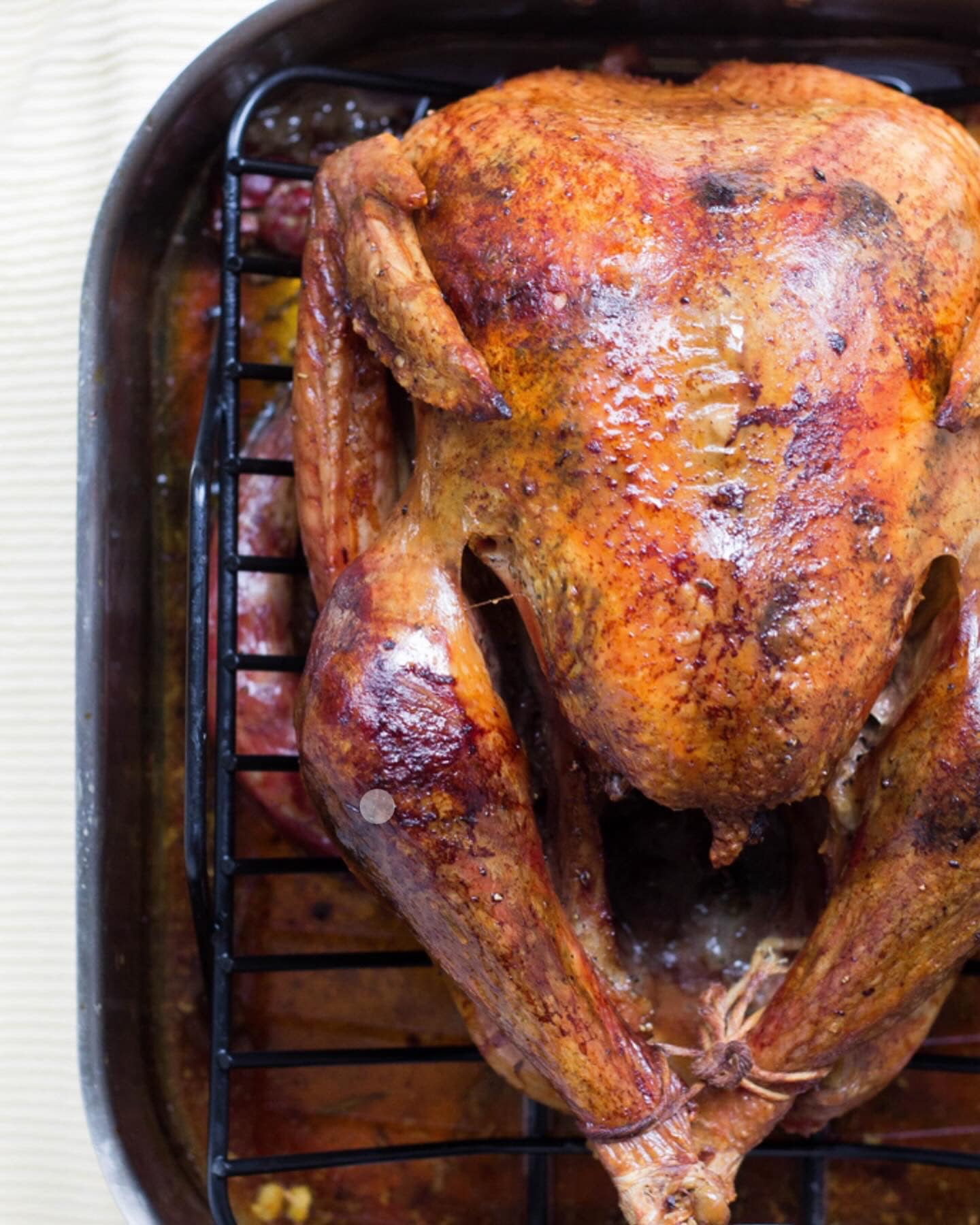
Autumnal delights abound at the Bellingham Farmers Market, like this apple cider from Cloud Mountain Farm Center
This Thanksgiving season, we’re feeling grateful for the land and seas that provide us with nourishing food, the folks who steward them, and our loved ones with whom we share meals and laughter.
If you’re searching for vegetables and fruit straight from the source, then head to the Bellingham Farmers Market on Saturdays from 10 am – 2 pm at the Depot Market Square. You’ll find leafy greens, cider, fish, meat, mushrooms, and winter squash galore. Speaking of winter squash, a local mindset can make your table full of delightfully surprising dishes… like an alt-pumpkin pie! Blue Hubbard squash is a perfect sweet addition to a holiday pie – check out a recipe here!
The Washington Food and Farm Finder can help you find local turkey, too, if you’re looking to go traditional for your Thanksgiving meal. Check out this link and search for all varieties of meat, fish, and poultry near you.
And when we cook, eat, and share local food during the holiday season, we’re also supporting a thriving economy. Your dollar just goes further when you invest in local businesses and farms, supporting neighbors, families, and farmers.
And while we acknowledge Thanksgiving as a time of gratitude, giving, and coming together, we must also acknowledge the myths of the Thanksgiving story. Read more about the real story, why it matters, and some simple things you can do to help combat Native erasure and to support Native communities this holiday and beyond in Truthsgiving: The True History of Thanksgiving. Also, this article by Huffpost.com highlights a group of diverse indigenous chefs that are using their food culture to tell the correct story about the holiday.
“I know that for me and for other people who have started on this journey [of eating indigenous food], it brings us so much closer to our ancestors, and I think that is important to strengthen us as people,” Echo-Hawk said. “I think that if other people outside of reservations that are not indigenous start eating what is local in their area, I think not only is it better for the environment, but it will also be better for their health.”
– Hillel Echo-Hawk

Photo courtesy of Osprey Hill Farm
